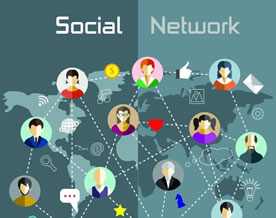Toyota's recall problems could hurt more than its own reputation. It may have damaged the valuable image of quality and dependability American buyers attribute to most Japanese car brands.
Many assumed that Honda Motor (HMC) and Nissan (NSANY) would be two of the bigger winners from Toyota's well-publicized recall issues because many Toyota (TM) owners are used to looking at other Japanese brands before they buy.
While Edmunds.com forecasts that Toyota's February sales will be down 10% from a year ago, Honda, No. 4 in terms of U.S. sales, is forecast to be up 24% while sales at No. 6 Nissan are expected to rise 38%.
But those comparisons are to last February -- the worst month for auto sales since 1981. And most experts believe that potential Toyota customers are sitting on the sidelines rather than shifting brands.
But Honda and Nissan could suffer collateral damage if consumers no longer give Japanese cars the same deference as in the past. It's one of the reasons that many experts think domestic automakers such as Ford Motor (F, Fortune 500) and General Motors and Korean automaker Hyundai Motor could be the biggest winners when the dust settles.
"Toyota is the flagship for products from Japan," said Jeff Schuster, director of global forecasting at J.D. Power & Associates. "It's hard to document how much it could hurt the other Japanese brands, but clearly it has potential to ripple through."
Figures from surveys conducted by Kelley Blue Book in recent weeks suggest that while current owners of Hondas and Nissans are staying loyal to those companies, fewer owners of other makes of cars would consider making a shift to Toyota's Japanese rivals now than before the crisis.
Hwei-Lin Oetken, vice president of market intelligence at Kelley Blue Book said there have also been small declines in how consumers rate the safety of Honda and Nissan in the latest survey.
Adding to the reputation risk for Honda is its own safetyrecall of 438,000 cars in February related to problems in airbags, although that was far less extensive than the more than 8 million Toyotas that have been recalled. Honda's problems also received far less media attention.
Honda spokeswoman Christina Ra said Honda hasn't changed its sales forecast due the problems with Toyota. She said all Honda can do is deal with its own recall and not worry about how it will be affected by problems at Toyota. But she conceded it could have a negative impact.
"Something like this in the news would undoubtedly cause questions and concern among customers," she said. "Only time will tell how that will shake out."
Nissan spokesman Fred Standish said he hadn't seen the Kelley Blue Book survey results so he couldn't comment on them, but he pointed out Nissan had record U.S. market share in January and is poised to report strong February sales.
"That's where the proof is, not in survey results," he said.
What makes the risk for the Japanese automakers greater is that the actual quality of the vehicles is now roughly the same as the quality of the two leading domestic brands, Chevrolet and Ford. That wasn't true a decade ago.
The J.D. Power initial quality survey found that for 2000 model year vehicles, Ford and Chevrolet vehicles had between 29% to 42% more problems than Toyotas and Hondas. But for 2009 model vehicles, the gap is down to between 1% and 4%.
The recall crisis has the chance to "level the playing field a little bit more in perception," said Schuster.
David Cole, chairman of the Center for Automotive Research, said without the recall crisis, many Americans would have gone on believing that this quality gap was still in place. But the recalls took away much of the edge the Japanese brands had in the eyes of potential consumers.
"The perception-reality gap is now gone," Cole said. "When you lose that aura, the whole deck gets reshuffled."
But others don't believe Japan's reputation for quality has been permanently damaged by Toyota's recalls.
"We don't think this is going to create a negative halo over the Japanese brands," said Lonnie Miller, vice president of industry analysis for R.L. Polk. "This is a big event right now, but I still believe that consumers have a short-term memory. Only if this keeps going and going could I see the perception gap closing."
© 2021-现在 好学英文网 软著登记号:2025SR2204462 湘ICP备2022000939号|













